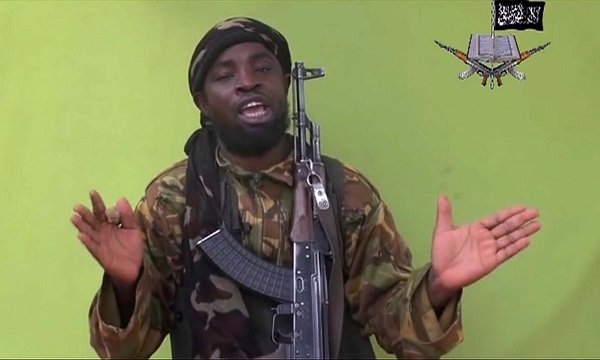More than a week after the news broke that the notoriously brutal leader of Boko Haram, Abubakar Shekau, has been killed, Nigerians await official word from relevant authorities one way or the other regarding his fate.
Reports emerged penultimate Wednesday that Shekau was killed in a face-off with fighters of the Islamic State in West Africa Province (ISWAP) somewhere around Sambisa forest. One version of the story said Shekau, a madcap of sorts, detonated a suicide vest on himself when he was about to be captured alive by fighters of ISWAP, a faction of the insurgency, who had fought through a protective cordon of his warriors to have him within their reach. According to that version, a shootout had ensued as ISWAP fighters surrounded the Boko Haram leader, and when Shekau noticed that those fighters wanted to capture him alive, he blew himself up.
Another version said ISWAP fighters had tracked down Shekau in his Sambisa hideout and demanded that he swear an oath of allegiance to Abu Musab al-Barnawi, the head of ISWAP, which he refused to do. After fruitless effort at dialoguing, said that account, Shekau tried to kill himself along with the ISWAP commanders by detonating a suicide vest. Still, another version said he shot himself in the chest, with the rump of his followers that survived ISWAP’s assault making away with him badly wounded.
Shekau assumed Boko Haram leadership in 2009 following the killing of the founder, Mohammed Yusuf, and steered the group into bloody insurgency. He was notorious for wanton killings, mass kidnappings and use of suicide bombers for massacres. It was estimated that more than 40,000 people had been killed and more than two million displaced from their homes by the insurgency, which began in northeast Nigeria but now has spread to parts of neighbouring Chad, Cameroon and Niger Republic. ISWAP broke off from Boko Haram and pledged allegiance to international terror group, ISIS, in 2016 due to alleged ideological differences arising from Shekau’s brutality against other Muslims, killing of civilians, and his use of women and children as suicide bombers. ISWAP reportedly objected to those methods though it shared the broad objectives of destruction of the secular state, creation of a polity based on Islamic law and termination of Western influence. Since the split, relations between both factions have varied from tactical cooperation to deadly confrontation, especially with Shekau being the recognised successor to Yusuf while al-Barnawi is Yusuf’s son.
The Nigerian military and sub-regional forces had declared Shekau dead at least four times since 2009, with the militant surfacing after such announcements in video messages, mocking government and firing bullets into the air. Even after this latest report broke, there was an audio recording lasting two minutes and 19 seconds and suspected to be of the Boko Haram leader trending on the airwaves. It is for this reason, apparently, that military authorities have been wary to confirm the new claim of Shekau’s death. Nigerian Army spokesperson, Brigadier-Gen. Mohammed Yerima, was reported saying the military was studying the claim. “We are looking into it carefully. In the past, we have reported that he is dead and then he comes back. It’s been embarrassing,” he was quoted saying, adding that if a body turns up, Nigerian authorities would rely on genetic testing before issuing any confirmation. “It’s a rumour. We are investigating it. We can only say something if we confirm it,” media sources cited Yerima saying.
The caution is not misplaced, but it again shows up the weakness of intelligence in Nigeria’s prosecution of the anti-insurgency war. It is instructive, for instance, that this latest news originated from foreign intelligence sources and not domestic ones; and it is even more curious that domestic intelligence has not been able to either confirm or debunk the claim many days on. For an outlaw who was Nigeria’s most wanted public enemy, it is unflattering that our military appear like reluctant spectators rather than protagonists in the whole narrative. We insist on getting an answer one way or the other with credible intelligence.





